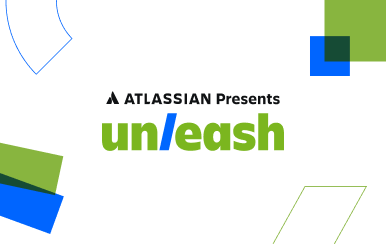Acceptable Use Policy
Effective starting: November 9, 2020
Here at Atlassian, our goal is to help you and your team do the best work of your lives, every day. To do this, we need to keep our products and services running smoothly, quickly, and without distraction. For this to happen, we need help from you, our users. We need you not to misuse or abuse our products and services.
To describe exactly what we mean by “misuse” or “abuse” – and help us identify such transgressions, and react accordingly – we’ve created this Acceptable Use Policy. Under this policy, we reserve the right to remove content that is inconsistent with the spirit of the guidelines, even if it’s something that is not forbidden by the letter of the policy. In other words, if you do something that isn’t listed here verbatim, but it looks or smells like something listed here, we may still remove it.
You’ll see the word “services” a lot throughout this page. That refers to all websites owned or operated by Atlassian, and any related websites, sub-domains and pages, as well as any cloud services operated by Atlassian.
Use your judgment, and let’s be kind to each other so we can keep creating great things. You can find all the legal fine print at the bottom of this page.
Here’s what we won’t allow:
Disruption
- Compromising the integrity of our systems. This could include probing, scanning, or testing the vulnerability of any system or network that hosts our services. This prohibition does not apply to security assessments expressly permitted by Atlassian
- Tampering with, reverse-engineering, or hacking our services, circumventing any security or authentication measures, or attempting to gain unauthorized access to the services, related systems, networks, or data
- Modifying, disabling, or compromising the integrity or performance of the services or related systems, network or data
- Deciphering any transmissions to or from the servers running the services
- Overwhelming or attempting to overwhelm our infrastructure by imposing an unreasonably large load on our systems that consume extraordinary resources (CPUs, memory, disk space, bandwidth, etc.), such as:
- Using “robots,” “spiders,” “offline readers,” or other automated systems to send more request messages to our servers than a human could reasonably send in the same period of time by using a normal browser
- Going far beyond the use parameters for any given service as described in its corresponding documentation
- Consuming an unreasonable amount of storage for music, videos, pornography, etc., in a way that’s unrelated to the purposes for which the services were designed
Wrongful activities
- Misrepresentation of yourself, or disguising the origin of any content (including by “spoofing”, “phishing”, manipulating headers or other identifiers, impersonating anyone else, or falsely implying any sponsorship or association with Atlassian or any third party)
- Using the services to violate the privacy of others, including publishing or posting other people's private and confidential information without their express permission, or collecting or gathering other people’s personal information (including account names or information) from our services
- Using our services to stalk, harass, or post direct, specific threats of violence against others
- Using the Services for any illegal purpose, or in violation of any laws (including without limitation data, privacy, and export control laws)
- Accessing or searching any part of the services by any means other than our publicly supported interfaces (for example, “scraping”)
- Using meta tags or any other “hidden text” including Atlassian’s or our suppliers’ product names or trademarks
- Using the Services for the purpose of providing alerts on disaster scenarios or any other situations directly related to health or safety, including but not limited to acts of terrorism, natural disasters, or emergency response
Inappropriate communications
- Using the services to generate or send unsolicited communications, advertising, chain letters, or spam
- Soliciting our users for commercial purposes, unless expressly permitted by Atlassian
- Disparaging Atlassian or our partners, vendors, or affiliates
- Promoting or advertising products or services other than your own without appropriate authorization
Inappropriate content
- Posting, uploading, sharing, submitting, or otherwise providing content that:
- Infringes Atlassian’s or a third party’s intellectual property or other rights, including any copyright, trademark, patent, trade secret, moral rights, privacy rights of publicity, or any other intellectual property right or proprietary or contractual right
- You don’t have the right to submit
- Is deceptive, fraudulent, illegal, obscene, defamatory, libelous, threatening, harmful to minors, pornographic (including child pornography, which we will remove and report to law enforcement, including the National Center for Missing and Exploited Children), indecent, harassing, hateful
- Encourages illegal or tortious conduct or that is otherwise inappropriate
- Attacks others based on their race, ethnicity, national origin, religion, sex, gender, sexual orientation, disability, or medical condition
- Contains viruses, bots, worms, scripting exploits, or other similar materials
- Is intended to be inflammatory
- Could otherwise cause damage to Atlassian or any third party
In this Acceptable Use Policy, the term “content” means: (1) any information, data, text, software, code, scripts, music, sound, photos, graphics, videos, messages, tags, interactive features, or other materials that you post, upload, share, submit, or otherwise provide in any manner to the services and (2) any other materials, content, or data you provide to Atlassian or use with the Services.
Without affecting any other remedies available to us, Atlassian may permanently or temporarily terminate or suspend a user’s account or access to the services without notice or liability if Atlassian (in its sole discretion) determines that a user has violated this Acceptable Use Policy.
